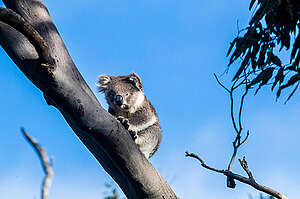This is a first-hand report from Kim Nguyen, who is cycling to Copenhagen this year to raise awareness about climate change in the lead-up to the UN’s Climate Change Conference in the Danish capital in December. He is currently in China, having already cycled from Brisbane.
I’ve cycled almost 7000 km and it’s almost 8 months since my journey began. It’s mentally and emotionally harder than I imagined, but physically a little easier. Not that it’s easy. I’m on my way to Denmark, overland, by bicycle. Started in Brisbane Australia. I reached China about 10 days ago.
What I’ve seen on my journey so far is the best and the worst of us. The way we manage to survive almost anywhere but at the expense of our natural environment everywhere. I haven’t seen much of China so far, just the remote southern regions of Yunnan, close to the border with Laos.
Here, the majority populations are of various ethnic minority groups such as the Hani. Dressed in bright blouses and head-dresses, adorned with stunningly intricate embroidery, the women toil away in the fields, the men doing their bit as well, although markedly less colourful.
There are not many cities down here, a few large towns, built around markets where the villagers congregate to share their wares. The dominant livelihood in is agriculture as evidenced by the thousands upon thousands of rice terraces that cover the mountain sides, as far as the eye can see.
Even here, far from the overwhelming pollution of Beijing and Shanghai, world’s away from the power guzzling cities of the United States, Europe and Australia, the signs of environmental exploitation are evident. Much of the land has been cleared for cultivation, often entire mountain ranges. The glorious forests that survive in pockets of protected areas are reminders of what this region once looked like.
The rivers are under enormous strain. Dammed at multiple levels, the river beds are being filled in with soil in a desperate effort to create more usable farmland. Water is diverted at every opportunity to irrigate the fields and subsequently the rivers appeared to be shrinking before my very eyes. The water is mostly brown, filled with agricultural run-off. Rubbish floats downstream in place of a waste disposal or recycling system.
Most people here still live largely traditional lives, their use of the land the same as it has been for generations. The problem is the increasing population, this is what has pushed the environment here to the edges and beyond what it can cope with. All this in an area sparsely populated compared with the crowded east of China. I shudder when I think about what the environmental impacts have been in the East.
My project is primarily about climate change. Unfortunately, due to my lack of Chinese language skills, I will need to wait until I reach Kunming before I can get some first hand accounts of the impacts in this region. I am promoting environmentally friendly travel, that’s why I’m cycling. Many of the people here still use horses, bicycles or foot travel to get around. Of course, they are tempted by the lavish lifestyles of the big cities and the extravagant cars they see Westerners using on television. If we are going to turn things around that is where change needs to start.
Kim Nguyen
Project Manager, Ride Planet Earth
Yuanyang, Yunnan Province,
China
23/03/09

